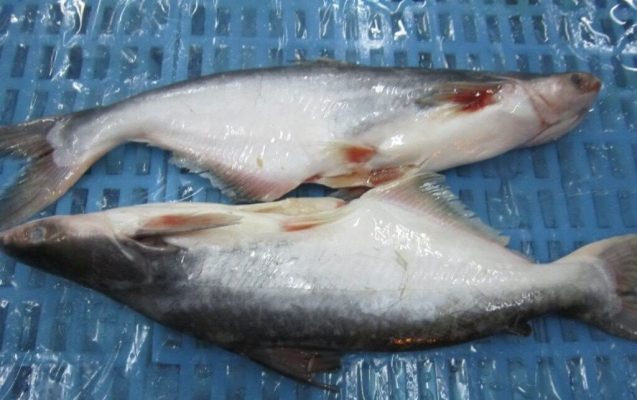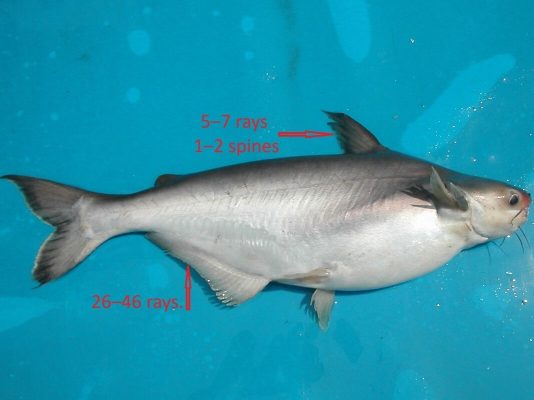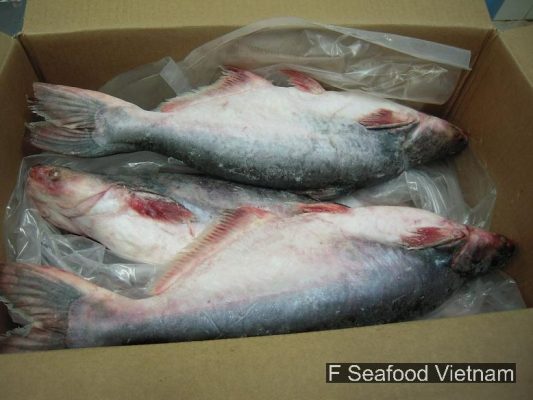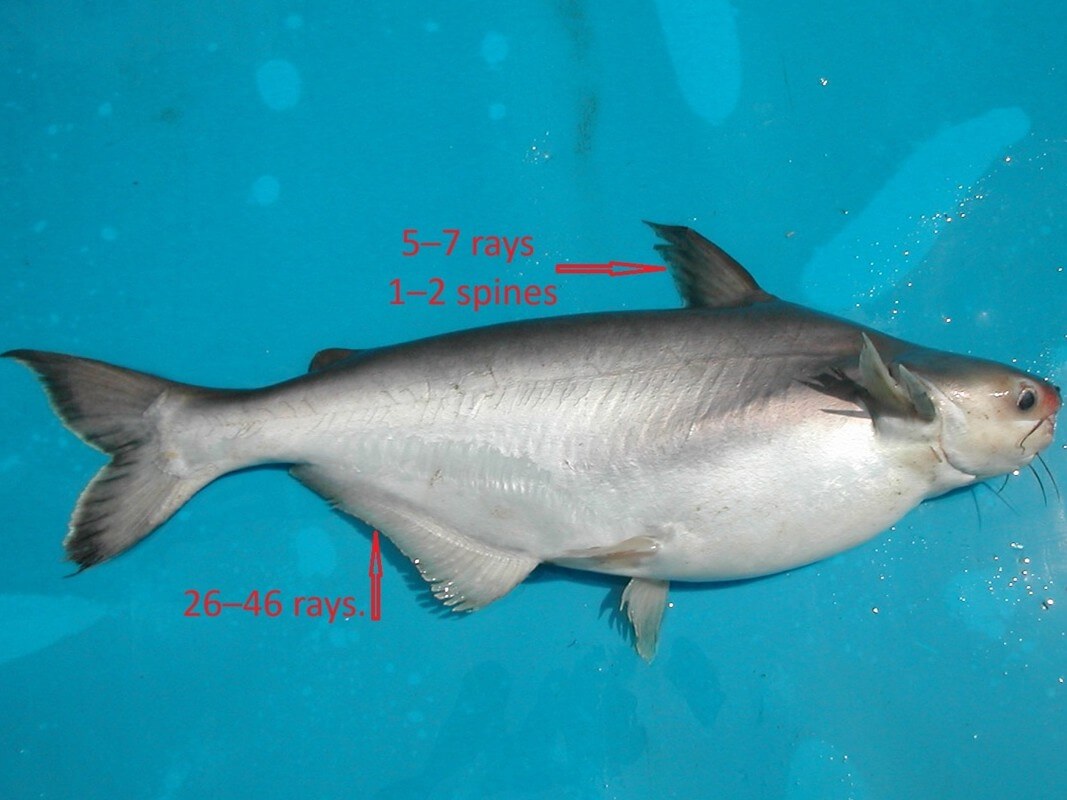Genera Classification
According to ITIS (Integrated Taxonomic Information System), the Pangasiidae family includes three genera:
- Sinopangasius (1 species)
- Helicophagus (3 species)
- Pangasius (27 species)

Characteristics
Members of the Pangasiidae family share some distinctive features:
- The dorsal fin is located close to the head, typically triangular in shape with 5–7 rays and 1–2 spines.
- The anal fin is relatively long, containing 26–46 rays.
- They usually have two pairs of maxillary barbels and one pair of chin barbels (though in Pangasius sanitwongsei, adults only retain the maxillary barbels).
- The body is solid and firm, with a small adipose fin also present.
- These fish are found in both freshwater and brackish waters, across South and Southeast Asia, ranging from Pakistan to Borneo.

In Vietnam, Pangasius is mainly distributed in the Mekong River basin and large southern river systems. The fish has a laterally compressed body, smooth skin, and short barbels.
Aquaculture and Farming Scale
Some Pangasius species have been cultured for centuries, especially Pangasius hypophthalmus (commonly called Tra fish). Today, Pangasius farming has developed into a major aquaculture and processing industry, in which this family plays a central role.
According to the evaluation of P. Cacot and J. Lazard (2004), the future development of Pangasius aquaculture is described as follows:
- Pangasius hypophthalmus: farming techniques have reached large-scale industrial levels; consumers consider it to be of fair quality.
- Pangasius bocourti (Basa fish): farmed at an increasingly large scale; consumers generally rank it as higher quality.
Economic Importance
The farming and processing of Pangasius play a crucial role in Vietnam’s economy, providing jobs for tens of thousands of farmers and workers (learn more in our About Us page). Despite challenges such as the U.S. anti-dumping case in the past, the Pangasius industry continues to grow strongly and has significant potential for further expansion in the global market.

Insights from VASEP
- Abundant Supply: Vietnam has favorable natural conditions for Pangasius farming, especially in the Mekong Delta provinces such as Dong Thap, An Giang, Vinh Long, and Tien Giang. These regions have extensive river systems, ponds, and lakes suitable for aquaculture.
- Large-Scale Production: Vietnam is the world’s largest producer of Pangasius, with extensive farming and processing activities. Although farming area has not significantly expanded in the past decade, Pangasius output steadily increased from 1.11 million tons (2015) to 1.787 million tons (2024). This growth is largely due to improved farming productivity, the adoption of new technologies, better production management, and sustainable aquaculture practices.
- Leading Exporter: Vietnam is the top exporter of Pangasius globally. From 2015 to 2024, exports grew strongly, especially during the post-pandemic recovery period. Despite fluctuations in export value and market share, Pangasius remains one of Vietnam’s key seafood export sectors. Major export markets include the U.S., EU, China, Brazil, Mexico, and other Southeast Asian countries. Vietnamese Pangasius is favored for its consistent quality and competitive pricing.
- Technology Adoption: The Vietnamese Pangasius industry is increasingly applying modern technologies in farming and processing. This includes advanced aquaculture methods, food processing innovations, international quality management systems (ISO, HACCP), and sustainability certifications such as ASC and Global GAP.
Frozen Pangasius Product Specifications
At F Seafood Vietnam, Pangasius products are part of our wide range of Frozen Seafood from Vietnam, available in different cuts and packings to suit international markets.
| Product | Size / Cut | Packing | Notes |
|---|---|---|---|
| Pangasius Fillet / Pangasius Fish Fillet | 60–120g, 120–170g, 170–220g, 220–300g, 300–500g | IQF 1kg/bag x10/ctn; Bulk 10kg/ctn | Skinless, boneless, trimmed; ASC Pangasius available |
| Bocourti Fillet | 120–170g, 170–220g, 220–300g | IQF / Bulk 10kg/ctn | Rich flavor, high-fat content |
| White Pangasius Fillet | 170–220g, 220–300g, 300–500g | IQF 1kg/bag; Bulk 10kg/ctn | Preferred in EU & U.S. markets |
| Pangasius Swai / Pangasius Swai Fillet | 200–500g | IQF / Retail packs | Popular in North American market |
| Pangasius Butterfly | Custom cuts | Retail packs / Bulk | Ideal for grilling and frying |
| Breaded Pangasius / Fried Pangasius | Custom cuts | Retail packs | Ready-to-cook / Ready-to-eat; HORECA markets |
| Pangas Fillet | Standard 170–220g, 220–300g | Bulk or retail packs | Alternative trade name for Pangasius fillet |

